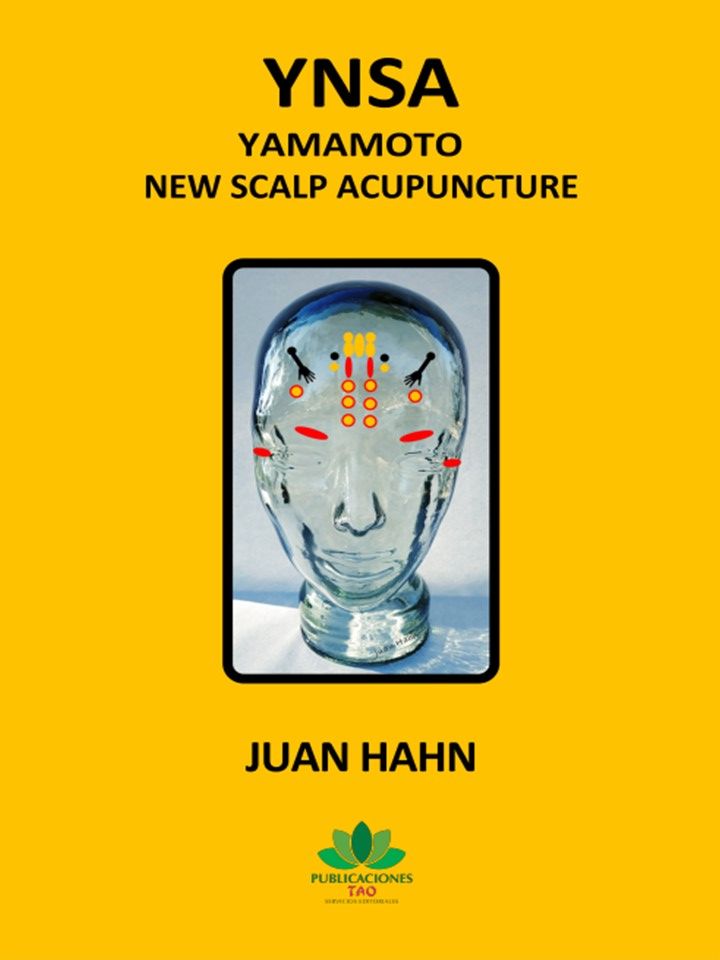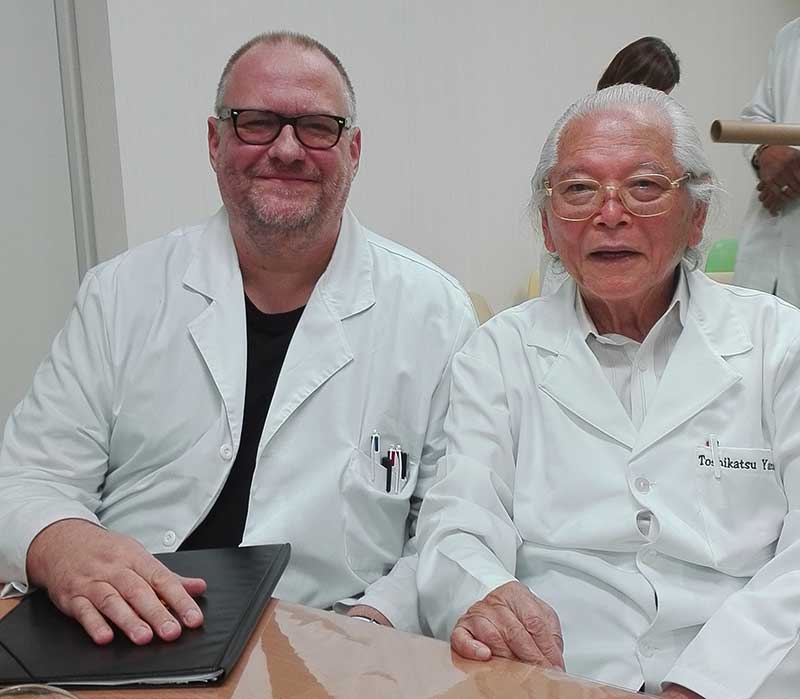YNSA - Yamamoto New Scalp FOUNDATIONS Acupuncture Training IRELAND - CORK

YAMAMOTO NEW SCALP ACUPUNCTURE
Developed by Japanese doctor Toshikatsu Yamamoto, the YNSA scalp acupuncture method is a complete system for evaluation, diagnosis and treatment.
Yamamoto´s YNSA method is the second-most prevalent microsystem in the world, behind only auriculotherapy. The system is very effective in treating both acute and chronic pain, as well as many neurological alterations, such as the after effects of a stroke. It is also very effective in many other pathologies.
The Yamamoto New Scalp Acupuncture (YNSA) was developed in the 1960s and first presented to the world at the Ryodoraku Congress held in Osaka, Japan, in 1973. Throughout more than forty years, Dr. Yamamoto has not stopped working to improve and complete the system.
In the early 70s, this method was made up of five Basic Points located on the forehead. It consisted of a single microsystem or somatotope- that is; correspondence of a body area point with a specific zone of the central nervous system, organ, muscle, etc. Since then, Dr. Yamamoto has discovered many more points as well as other somatotopes, and not only in the head but also in other body parts.
In traditional Japan, acupuncture was usually practiced by massage therapists, and therefore, it was not socially well-recognized. The Japanese medical community and society did not recognize the effectiveness of this technique until a few years ago, and there is no doubt that this has occurred largely thanks to the tireless activity of Dr. Yamamoto.
In the 1960s, after studying and working abroad for ten years, Dr. Yamamoto returned to Japan along with his wife Helene, a German nurse who has accompanied him throughout his career, and their two daughters.
In addition to being a gynaecologist and surgeon, Dr. Yamamoto is an also anaesthetist, which was very useful to start treating patients in his hometown of Nichinan. There were a lot of people who suffered from osteoarticular pain after working for years in water-covered rice paddies. Dr. Yamamoto began to practice in a humble wooden cabin, where he treated diseases related to areas as different as gynaecology, internal medicine, obstetrics, surgery, and pain treatment through nerve blocks, which are basically anaesthetic drug injections. On one occasion, Dr. Yamamoto mistakenly administered only a saline injection to a patient, that is, he accidentally neglected to add the anaesthetic agent: Novocaine. However, the next day, his patient returned to the consultation stating that the pain had gone and asking for another injection to make sure joint pain did not come back again. That same night, Dr. Yamamoto turned to the experience of a massage therapist, who provided him with an old book about acupuncture. From that moment, Dr. Yamamoto decided to continue giving shots without anaesthetics and started using acupuncture needles. This was the beginning of the Yamamoto New Scalp Acupuncture (YNSA), currently applied with great success worldwide by thousands of therapists, and thus helping hundreds of thousands of patients.
The wooden cabin became too small, so Dr. Yamamoto decided to build a hospital with the invaluable help from his brother, who guaranteed a mortgage. More than 2,000 surgeries with acupuncture anaesthesia were performed in these hospital facilities, such as appendectomies, deliveries, Cesarean births, hysterectomies, intestinal obstruction repairs and amputations. Subsequently, Dr. Yamamoto would also include hemiplegic patient treatment.
In the Yamamoto New Scalp Acupuncture (YNSA), there are several diagnostic, therapeutic and diagnostic-therapeutic areas (not only in the head), and the following stand out among them: neck, upper and lower limbs, pubis and abdomen (area developed from oriental abdominal acupuncture and adapted to scalp acupuncture). Therefore, there is a correlation between brain, neck and abdomen points with the rest of the body and with each other.
An association between the so-called Y Points or YPSILON Points and the twelve cranial pairs is made through the diagnostic technique in neck and abdomen areas. All internal organs are located at the Y or Ypsilon Points. These points maintain a correspondence to the ZANG FU, which are meridians according to TCM and internal organs according to the Western approach. The system distinguishes between the YIN somatotope (on the anterior part of skull) and the YAN somatotope (on the posterior part of skull).
As a general rule, needle insertion is performed ipsilaterally in the case of pain treatment or musculoskeletal disorders, but contra laterally in the case of hemiplegia, although this pattern is subject to modification depending on diagnosis.

Juan Hahn is an acupuncturist and manual therapist. Trained in multiple natural therapies, he specializes in acupuncture and uses a personal style combining different acupuncture techniques based on synergies between classical trends and more avant-garde acupuncture theories.
After graduating with a degree in Nursing, Juan Hahn pursued the following postgraduate degrees: Pain Management, Prehospital Emergencies, Critical Care, Operating Room and Reanimation.
Juan Hahn has worked and completed his education and training in different countries such as Spain, Germany, United Kingdom, Scotland, Italy, Greece, Israel, China, India, Vietnam, Nepal, Thailand and Japan

Course Content for YNSA training in IRELAND
TECHNIQUE
BASIC POINTS
SENSORY POINTS
BRAIN POINTS
YPSILON or Y POINTS
CRANIAL NERVE POINTS
I SOMATOTOPE
J-K SOMATOTOPE
OTHER SOMATOTOPES
EXTRA POINTS
TINNITUS
NECK DIAGNOSIS
ABDOMINAL DIAGNOSIS
ARM DIAGNOSIS
IG4 DIAGNOSIS



